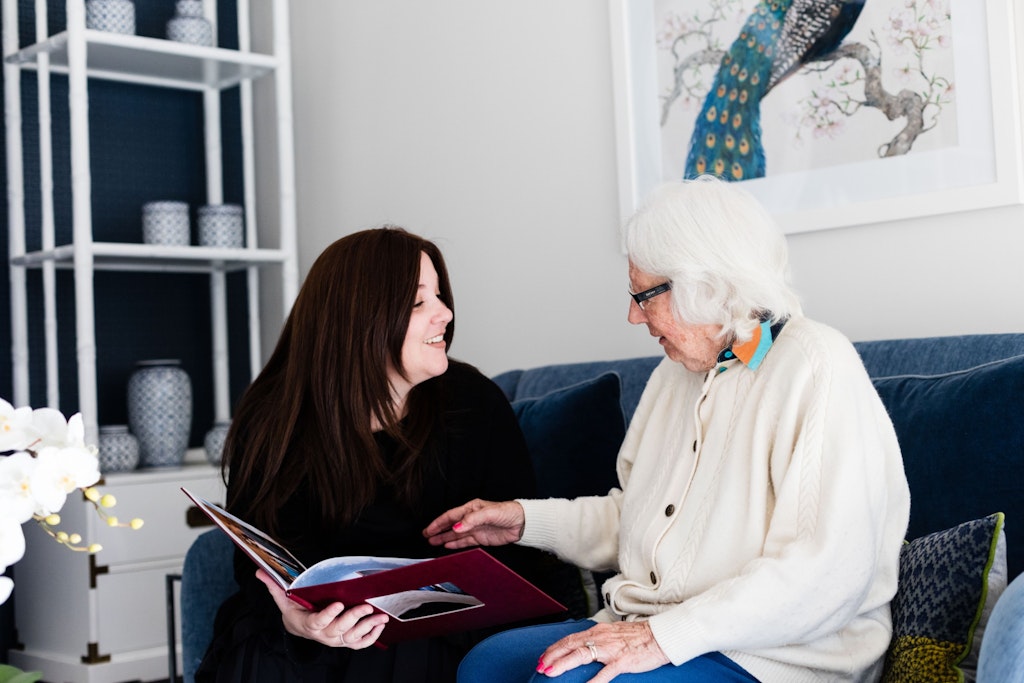Tamar Krebs: Devoted to doing dementia differently

Tamar Krebs GUEST CONTRIBUTOR
Group Homes Australia - Chief Executive Officer and Founder
Last updated on 23 November 2022

Thirteen years after Tamar Krebs started working in the aged care industry, she introduced a care model that changed the face of dementia care in Australia forever. She’s been dedicated to this model, that puts people with dementia first, for the past 10 years. We put the spotlight on this powerful woman in business to tell her story.
The day that Tamar Krebs opened Group Homes Australia’s (GHA) first group home in a leafy Sydney suburb in 2012 was the realisation of a business idea that took 62 meetings and 38 presentations to win over potential investors.
“There were many days where I’d come home from presenting and think ‘I can’t do this’ and my husband would say ‘keep going, you can do this’,” Ms Krebs said.
A Registered Nurse with a Master of Health Services Management, a Bachelor of Science and various certificates in Gerontology and Dementia, Tamar Krebs is no ordinary businesswoman.
Ms Krebs has been working in aged care since 1998. It was in 2009 when she was managing a dementia unit at a large aged care facility, that a niggling feeling set in. It crystallised when she was sitting in the facility’s residents’ lounge one day.
“I closed my eyes and listened and it was all call bells and trolleys,” she said. “I took in the smell and it was confronting. I opened my eyes and it felt like a parking lot of people.
“That started me on my journey of questioning what we, as a society, could do better for people living with dementia and also knowing that the current status quo wasn’t good enough for anyone I loved.”
Based on a model that has been around since the ‘60s in the Netherlands and Scandinavia, GHA’s 23 Sydney-based group homes – 14 of which are operational while nine are under development – are purpose specific but look and feel like traditional houses in traditional streets.
Each is home to between six and ten residents who are encouraged to socialise, cook, garden and maintain their independence, with the support of around-the-clock specialist ‘Homemakers’ who do things ‘with’ residents not ‘for’ them.
On the way to finding a syndicate of people to invest in GHA, Ms Krebs says she faced several hurdles – among them the fact that she was young and female – but she refused to let it stop her.
“I suppose the big thing for me was learning that it wasn’t about me,” said the GHA founder.
“Their discrimination was about their preconceived ideas, so I didn’t have to own it.
“When a presentation would end and they’d say ‘no’ I’d say ‘well if not you, then who – you might know someone else who’s interested in this venture’.
“It’s that perseverance and pushing that, just because the first person says no, it doesn’t mean it’s the end of the line. Sometimes you need to find a different way.”
It was Ms Krebs’ drive and dedication that enabled her to move beyond the challenges she faced in getting her business off the ground, and launch Group Homes Australia, which is all about doing dementia differently.
“Our carers are called Homemakers because we want them to create homes,” said Ms Krebs.
“We talk about living beyond the diagnosis of dementia because it’s about living not suffering with dementia. We don’t talk about care plans because it’s about nurturing people in order to find, in their vulnerability, how we can help them flourish.”
As such, GHA’s team of 150 Homemakers are trained to create cherished moments.
Ms Krebs explained, “For people with dementia, it’s not about what you’re doing because anyone can help someone in a shower. It’s about how you do it and why you do it in a particular way.”
At GHA, it’s also about abandoning the idea of grouping people in aged care based on their disease or their requirements around care.
“We had a couple come to us who’d been married for 67 years and the gentleman was dying of cancer. Every care home they approached wanted to separate them because they had different care needs,” recalled Ms Krebs.
“At GHA, we don’t define people by their care needs, and we wanted to celebrate that they were going through their end-of-life journey. The morning he passed away, they were lying on the bed together and she put her head on his chest and said ‘take me with you’. In moments like that, you know you’re doing the right thing.”
When asked about her thoughts on being a successful woman in business in the aged care industry, Ms Krebs said, “Being a woman in business in the aged care industry – it’s the same as being a woman in any industry, that juggles being a wife, a Mum, a daughter along with a passion for her career.
“It’s about allowing yourself to stand in the ‘messiness’ of all of that, and not losing heart or the drive that you started out with.
“Ultimately, I’m driven by the knowledge that our team get the opportunity to have a big impact on the aged care industry and that in doing so, we will leave the world a better place for the next generation who will have better options as they age.”